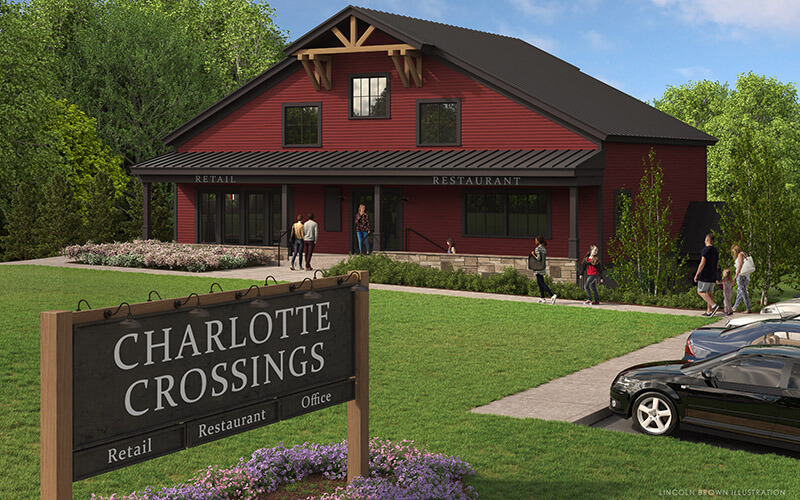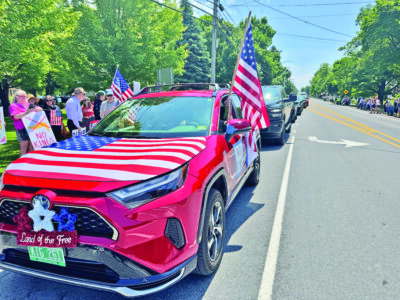Charlotte Crossings faces parking challenge

Charlotte Crossings, the new multi-use building in Charlotte, is open for business, but there are more obstacles in 2020 for the leaders on this project. Mike Dunbar and Debra Kassabian, owners and developers of Charlotte Crossings, are facing challenges to put in a parking spot at the front of their new building.
Dunbar and Kassabian have initiated a petition to land this issue on the ballot for Town Meeting Day in March. While they continue to comply with the traditional methods of bringing this issue to the planning and zoning commissions, Dunbar and Kassabian are also working to involve the citizens of Charlotte by asking them to sign their petition.
The petition hopes to change a line in a zoning regulation that prevents them from developing at all on the land between the building and the road. The petition requires 175 signatures, or 5 percent of the town’s voting body. It currently has about 130 signatures, and Dunbar and Kassabian plan to reach the required number of signatures by the end of the week.
Dunbar and Kassabian were excited to begin construction of Charlotte Crossings last October. The original zoning plans included a parking lot in the back, which required a ramp that stretched more than 70 feet from the parking lot to the entrance of the restaurant. Though the ramp would comply with ADA guidelines, to Dunbar and Kassabian it seemed excessively unwelcoming to patrons with handicaps compared with having a parking spot at the front of the building.
Both Dunbar and Kassabian concluded, after trying to change a piece of regulation written by the town, that the process is not change-friendly. So they are working through the petition process to secure the change they want: delete the single line in the regulation that makes it overly difficult, in their view, to develop their property—in this instance by adding a handicap parking space—between the building and the road.
Dunbar wants to stress that he “understands that rules need to be followed.” Faced with the possibility of starting over with a new agenda for the planning and zoning commissions, he believes that “how we deal with [this] matters.” Kassabian agrees, noting several benefits of a parking area with accessibility to the front of the building seems like a “no brainer.” She worries that the process will be too drawn out and hopes that “common sense prevails over a regulation, or one line [of law].”
Related Stories
Popular Stories
If you enjoy The Charlotte News, please consider making a donation. Your gift will help us produce more stories like this. The majority of our budget comes from charitable contributions. Your gift helps sustain The Charlotte News, keeping it a free service for everyone in town. Thank you.
Andrew Zehner, Board Chair







